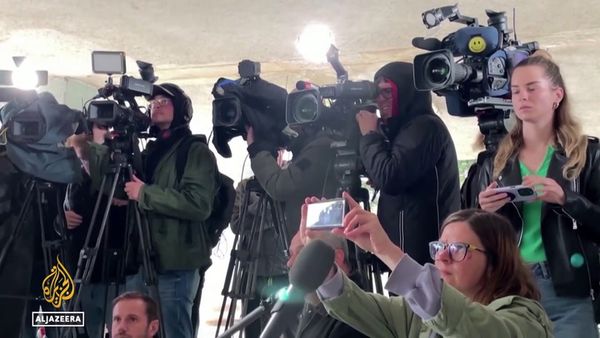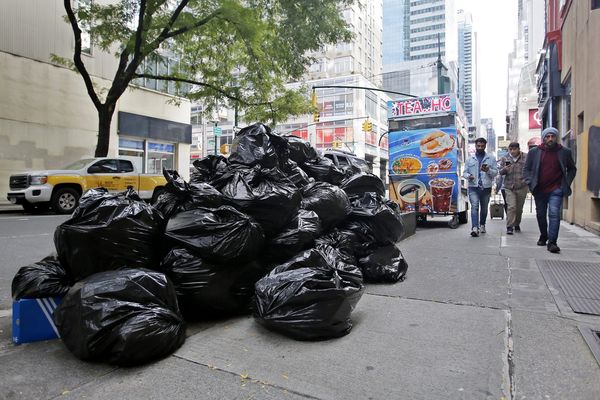
As a local general practitioner, I note Newcastle MP Sharon Claydon's recent request to myself and my colleagues from the floor of Parliament to bulk bill more of my patients.
I am a sole trader GP. A bulk billed standard consultation, even with the triple bulk bill incentive, is a 28 per cent reduction in income from the same privately billed consultation at full fee. The only way I am paid, the only way I can feed my children and pay my mortgage, is patient fees. From that fee, I also pay all the other non-medical staff of the practice, and for the rent of the room. Like other casual employees and sole traders, I do not have annual leave, sick leave, worker's compensation, employer superannuation or a parliamentary pension.
So, if Ms Claydon thinks it would be a good and noble thing for me to reduce my income by 28 per cent in order to subsidise the health care of our vulnerable patients, I dare say the same is true for her, and I look forward to hearing of her donation.
Dr Kathleen Wild, Mayfield
Good look at bad governance
Without putting too fine a line on government incompetency, what would the following be classed as?:
NDIS Minister Bill Shorten is being questioned by his party over losing control of a state-federal deal to fix the NDIS; Bowen's new Fuel Efficiency Standards Plan has now been amended as it would drive up the cost of 4WDs, SUVs and utes; energy affordability is a mess; immigration has allowed half a million people into Australia, a rise of 60 per cent in the past year alone, driving up rents and housing shortages; Environment Minister Tanya Plibersek wants to fast track renewable projects while banning gas projects; Burke's IR laws are forcing businesses to the wall (there were 6742 corporate bankruptcies in 2023, a 13-year high); Defence Minister Marles gives $4 billion to Britain to build nuclear engines for submarines, but does not support nuclear energy; $4 billion has been given to build houses in remote Indigenous communities where there are no jobs available and little community services, not to mention the Voice debacle and broken tax promises.
Competency, honesty and trust are normally the pillars of good governance.
John Cooper, Charlestown
True cost of Fukushima
Your correspondent ("Sun's deadly rays still a concern", Letters, 28/3) correctly points out that there was only one death attributed to radiation poisoning after the 2011 Fukushima Daiichi nuclear reactor disaster.
Perhaps he is not aware of its secondary impacts. Immediately after the disaster, a 200 kilometre exclusion zone was imposed and about 150,000 residents were evacuated, many forcibly. This relocation resulted in a sharp increase in deaths among elderly people who were put in temporary housing, as well as a significant increase in chronic diseases. The loss of social and family connections and family ties led to increased mental health problems and high rates of PTSD. Evacuated children displayed a greater tendency for hyperactivity, emotional symptoms and conduct problems. The wide exclusion zone was lifted in 2016 but only 30 per cent of residents have returned and a 50 kilometre exclusion zone remains.
The deaths and health problems, including mental health problems, directly associated with the disaster persist to this day.
These are the true impacts of the Fukushima nuclear disaster. They cannot be ignored or glossed over.
John Ure, Mount Hutton
Price of convenience
I reckon any government, or anyone else, who says they can control supermarket pricing is having you on.
Government relinquished control over pricing long ago to create competition and keep pricing competitive with a free trade agreement.
Government once regulated pricing on petrol, milk, bread, eggs, cigarettes and tobacco, beer, wine and alcohol, to name just a few, to stop profiteering due to a shortage of supply, just after the Second World War.
Since then, the big supermarkets have flourished and expanded to bring convenient one-stop shopping to most suburbs in the country.
Do they charge too much? I think not. When weighing the percentage of profit against their cost of turnover, they are less profitable when compared with other large well-known retailers.
Next time you shop at Woolworths or Coles take note of all the produce in fresh fruit and vegetables, the dairy and bakery, the small goods and butchery, to name a few, that won't be sold before the use-by date, thus the loss of these products. They need to go to a waste-disposal facility, which can be very expensive.
No, I don't have shares or work in supermarkets, but I enjoy the convenience they offer. Yes, at times they are not cheap, but I would prefer to pay that little bit extra to supply everything I need, whenever it's needed.
This is going to make me old, but I can remember when Coles and Woolworths sold almost everything but food.
After school, I would run messages for my mother, to the butcher, the baker and the corner shop, but that was a different world than today.
Carl Stevenson, Dora Creek
Renewables, nuclear: let's have both
I don't see why we can't have both nuclear and renewable energy, which will give us long-term security. Some say nuclear will take too long and be too expensive. And yet renewables, which are hugely subsidised with no realistic timeframe, aren't any closer than nuclear. Most renewables have a lifespan of 15-20 years, as opposed to 80-100 for nuclear. If you do the maths, taking into account continual replacement of renewables, nuclear surely can't be ruled out. Regarding EV cars, good luck trying to sell one second hand, with a battery life of 10-15 years at a replacement cost of $10,000-20,000 and yet the government wants to put a higher tariff on hybrids.
Tony Mansfield, Lambton
Indifference not the answer
It amazes me to still hear people question the evidence for human-induced climate change. Improved computer modelling of real data clearly shows that weather events such as floods, fires and drought are becoming more destructive and frequent worldwide. These changes are linked to the burning of heat-trapping pollutants such as coal and gas. There are more than 170 scientific studies published globally over the past two decades that back this up. The climate emergency needs to be taken seriously.
Anne O'Hara, Wanniassa
Rallying for nature
Kudos to all who rallied across Australia to call for an end to native forest logging ("Fighting to save our native forests", Herald, 25/3). In an era of global heating, with escalating numbers of threatened species, and an environment that was deemed "poor and deteriorating" in the last State of the Environment report, Australia must end the practice of clear-felling precious native forests. In NSW only 4-8 per cent of logged native forest becomes sawn timber used for building houses and furniture, the rest ends up as wood chips or waste. Most building timber already comes from plantations. It's high time we saw forests for their beauty and ecological significance. Making the switch to sustainably grown plantation timber is the best and only way forward.







